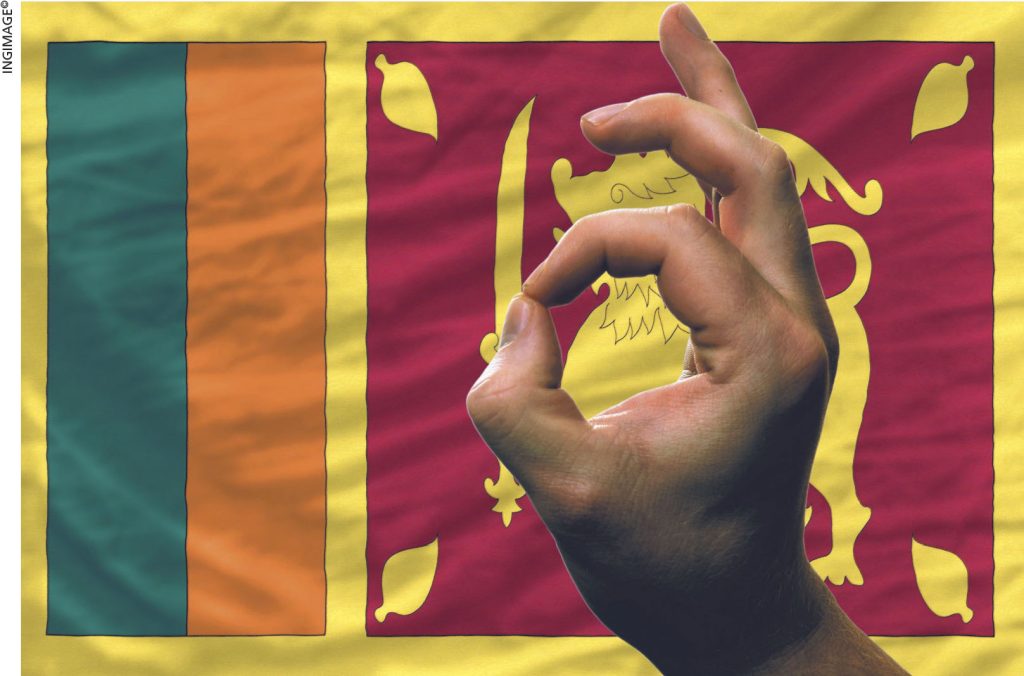SRI LANKA TODAY
The task of rebuilding trust among Sri Lankan citizens and the international community has commenced. This process has been taking place over the past two years through steady engagement with the IMF and by allowing independent institutions such as the bribery commission, police and judiciary to carry out their mandates, especially under the new government. They need to be able to continue along this path, despite the efforts of those who have been and will try to discredit the government.
The most visible sign of this regained credibility is Sri Lanka’s strengthened relationship with the International Monetary Fund. In July, the IMF Executive Board completed its fourth review and approved a fresh disbursement of US$ 350 million.
TRUST BUILDING IN SRI LANKA
Dr. Jehan Perera believes that the process of building trust has begun

Significantly, the lender also granted waivers after the government acknowledged that it had previously underreported expenditure arrears and has taken steps to improve data integrity.
Such disclosure by other countries would have led to a freeze on support. But the IMF’s decision to continue backing Sri Lanka points to a deeper confidence in the government’s commitment and direction.
The visiting mission went further and noted that the government’s solid fiscal management and commitment to economic reform have created a foundation stable enough to allow long-term challenges to come into focus rather than only short-term crisis management.
This is no small achievement since tariff hikes, tax reforms and subsidy withdrawals have exacted political and social costs. Yet, the government has stayed the course and as a result, reserves are stabilising, inflation is under control and the economy is edging toward modest growth, despite volatility in world trade.
Trust is the underlying force that flows beneath these positive developments; it is far more fundamental than policy measures or financial targets, and is what’s holding this nation together. When trust is absent, energy is wasted on defensiveness and self-preservation, rather than innovation and collective progress. But when it grows, it becomes a force multiplier that enables reform, collaboration and renewal.
In Sri Lanka’s case, this new reservoir of trust needs to be extended beyond the IMF and dealing with corruption, to include attracting foreign direct investments (FDI) and addressing ethnic discord.
FDI has long been heralded as essential to boosting economic growth and job creation. However, investors need more than incentives – they require predictability, fairness and a level playing field.
These factors stem from the rule of law, transparency and consistency in governance. The trust the government has built with international financial institutions and its willingness to enforce laws even against powerful former cabinet ministers who are found guilty of misappropriating public funds, sends a strong signal that Sri Lanka is ready for genuine rules based economic engagement. And that’s precisely what investors would like to see happen before making commitments.
At the same time, the government has an equally urgent responsibility to extend this trust building approach to address the legacy of conflict.
Similar to what it has achieved by winning the trust of international financial partners through corrective action, it can win the trust of citizens – especially in the north and east – by initiating a credible nationally owned accountability process.
The people too should be consulted when dealing with human rights violations and other unconscionable acts committed during the civil war.
And as international support is available in the case of the economy, it’s also available in dealing with the past. Responsible economic management earns international trust, which enables more investment and debt support.
Trust should also help the country, which was once torn apart by war, to begin knitting itself back together through truth, accountability and economic renewal. It is ultimately the government’s responsibility to establish credible mechanisms that win the confidence of victims and survivors alike.
The window of trust that has been opened provides the political space to do exactly that.
This moment shouldn’t be lost. If trust was the key that unlocked the IMF’s support, it will also unlock the far greater potential of a united and prosperous country whose people work together as partners and teams, rather than as rivals and potential threats.
The political courage that has helped bring the economy back from the brink now needs to be channelled into deeper reconciliation and investment, through long-term peace and prosperity.





